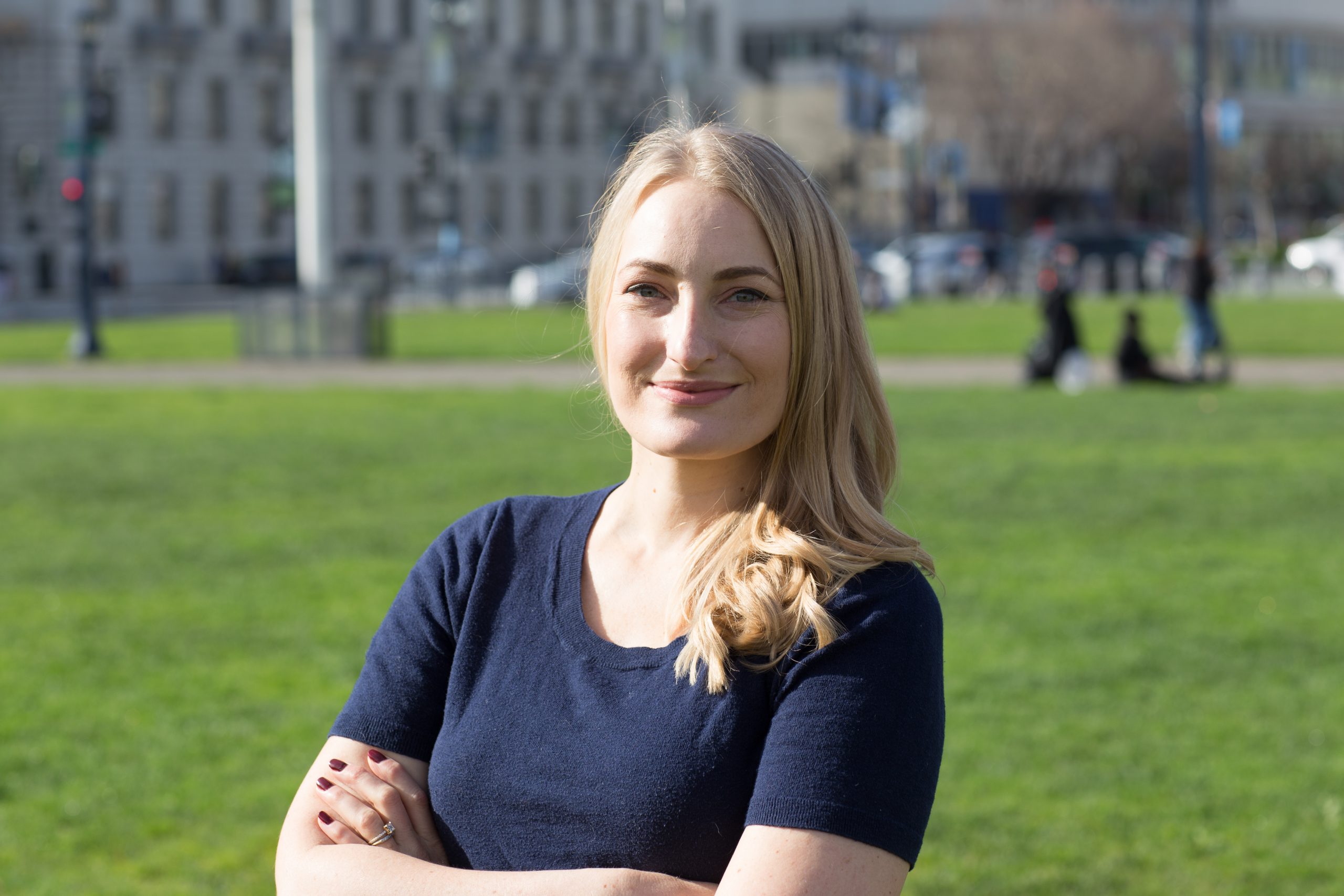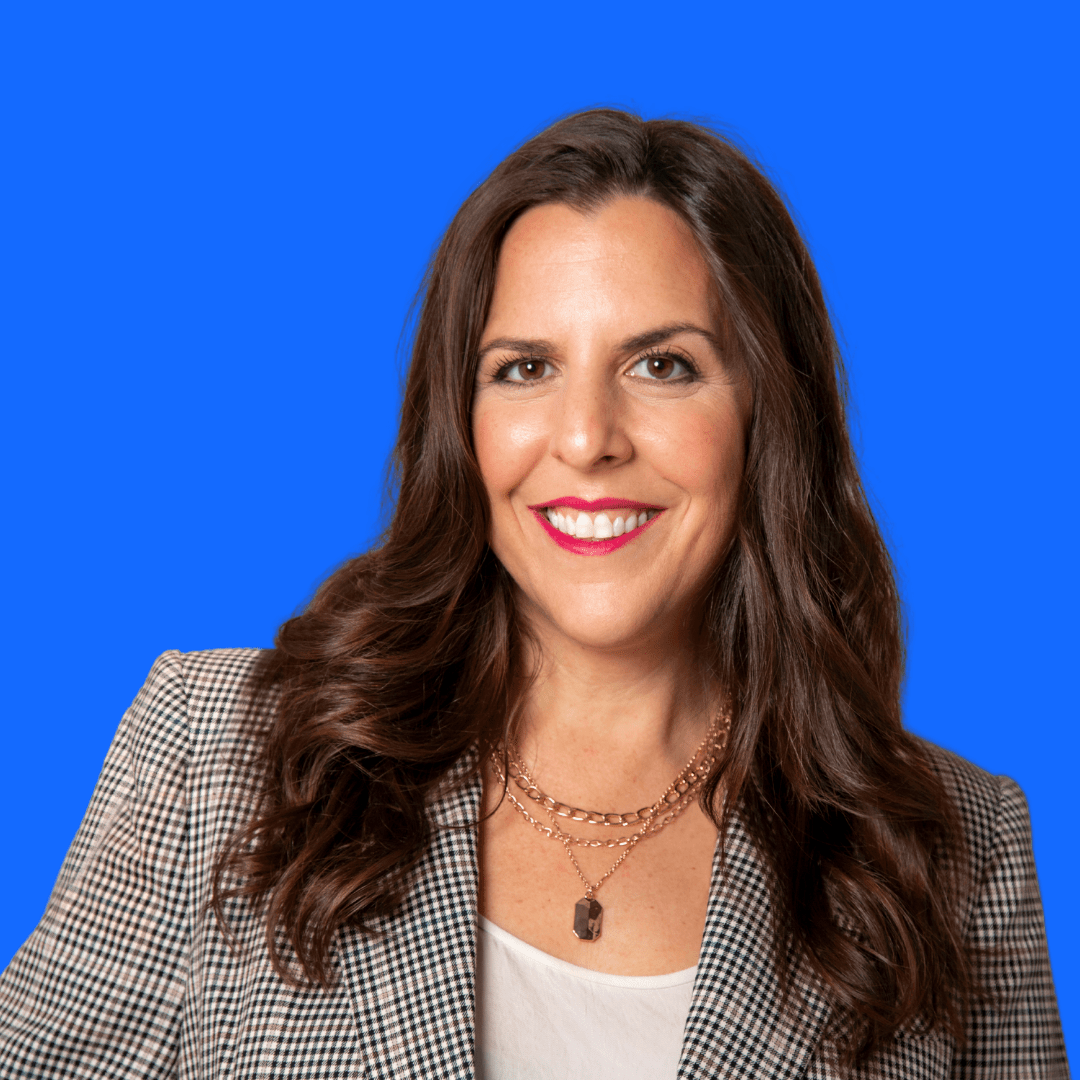The Crunchbase “Female Founder Series,” is a series of stories, Q&As, and thought-leadership pieces from glass-ceiling-smashers who overcame the odds and are now leading successful companies.
Melissa Pancoast is the founder and CEO of The Beans, a financial care company that is building financial products, experiences, and community for America’s “caring class.” She started her career as a teacher, where she saw the impact of financial stress firsthand in her community.
After completing post-graduate work, she served as a researcher in the University of Oxford’s Centre for Evidence-Based Interventions, where she saw the potential to massively and cheaply scale effective behavioral tech and developed the first program proven to reduce financial stress. Since then, she has run operations for Big Health, launched Seacliff Sales, and co-founded Comet Labs, a venture capital fund focused on early-stage machine intelligence companies.
In this Q&A, Pancoast shares insights into her journey founding The Beans, why we need to treat financial wellness as a health problem, and her advice for other entrepreneurs.

Q: What were you doing before building The Beans?
I had my first eye-opening experience in the perils of the U.S. education system when I attended a scholars program in middle school. The majority of students in my program came from affluent backgrounds and were predominantly white, while the general ed classes were very different.
This first clued me in to the inequality in our education system, which starts at the earliest levels of schooling, and later inspired my career dedicated to education. I joined the staff at Teach For America, worked in the classroom as an academic program manager, and then was the political director focused on laws that govern education quality.
I later went back to school to study financial stress — the thread that runs through every issue in education, from students’ parents to teachers, to students like myself. It wasn’t until I graduated from Oxford with crushing student loan debt that I felt the true brokenness of our system and the urgent need to fix how people engage their money. So I moved to Silicon Valley to tackle financial stress for America’s teachers.
Q: How did those experiences lead to what you’re doing today?
I was able to do research in South Africa, where we looked at ways to reduce financial stress for families affected by HIV. My team and I developed a system of visual financial planning using dried beans and corn. We picked beans because research shows that people score better on math problems when the “visual aids” don’t look like money.
After Oxford, I moved to San Francisco to build technology capable of helping people live their best lives. The way most budgeting apps work today actually exacerbates the worst parts of our biases and clouded judgments—the human brain works logarithmically, not numerically. So I named our company The Beans because I wanted to always remember our roots in science and in South Africa. Many of my colleagues and I are all former K-12 teachers and are genuinely passionate about building financial products, experiences, and community for America’s teachers and nonprofit professionals.
Q: What problem are you solving with The Beans?
It’s probably no surprise that money is currently ranked as the No. 1 cause of stress in the U.S., surpassing health, family and even work. But the reality is most solutions out there don’t address the root cause of this pain or help people navigate their financial lives more successfully. So we decided we needed to create a simple, visual plan that people can use to support them on the path to success. At The Beans, we want people to have that coffee and not feel guilty about it and help them stay on track.
Research has found that people with plans are 10 times more likely to succeed, so we’ve made it super easy to get a financial plan that both evolves as you and your finances evolve, and meets you where you’re at. We generate a cash-flow plan based on historical earning and spending trends, so as users reach financial milestones, their plan evolves to support their efforts toward savings, debt pay-off and growth—or even to strengthen their relationship with their money.
Q: In what ways do you think differently about your industry than others do?
Our approach to data and design sets us apart. We understand that data is the key to maintaining trust with our members and delivering a product that delights. We started with the unusual strategy of building our own data model from the ground up and trained with data from our market.
Unlike other categorization methods, our proprietary machine-learning models understand human behavior and label transactions according to context and preference. Our design is evidence-based, meaning we develop our features and UI more like a digital health company than a fintech company, basing decisions in research of what works.
We’re also uniquely focused on care workers. Teachers, and other helping professionals, are a special group for me, and they’re also exactly the types of people that fintech should be building for. The profession is stable, where workers have a predictable profile, a solvable cash flow problem, and a laudable mission.
Yet, each year, care workers spend more than $4,000 on stress relief and, right now, financial stress costs are a top reason teachers and care workers leave their professions, costing employers $15 billion each year. We’re on a mission to alleviate financial stress for one of the hardest working professions out there.
Q: How are you approaching fintech differently from your competitors?
Apps today are full of triggers causing financial stress and embarrassment. Why would people pay for products that make them feel bad and that they don’t trust? Products like calorie counters are both labor intensive and shaming. Did you buy your coffee today? If yes, most apps are — counterintuitively — going to make you less likely to want to open up the app and log the expense.
Instead we encourage users to get support from nudges and other members in the money-life balance community and upgrade their side hustles.
Q: What is your advice for other female founders at the beginning of their entrepreneurial journeys?
Focusing on your network is critically important; it’s your primary job to build and nurture relationships with the people who can show you the ropes and help you make your vision a reality.
Also, focusing on a problem that you really understand. We offer our Financial Wellness Workshop to partners who employ helpers. They give us time with our users so we can hear them and truly understand their financial situations so we can best serve them.
Q: What are some of the philosophies your team has incorporated into your business?
We work hard to keep the membrane between our organization and our members as
thin as possible. This requires a philosophy of transparency and accountability that grounds us in the community we’re building for.
We also focus on making the path to financial balance as easy as possible so that users can stress less about money and focus on what they love.
Q: Do you have any mentors who have helped shape your thinking and your success?
Back at Oxford I had the great privilege of working with Dr. Lucie Cluver. She empowered me to build a team and develop the “Economic Strengthening” program to address the financial weight families feel. The Economic Strengthening program has been proven effective in reducing financial stress and abuse in families and has been shared with more than 77 million families around the world. Our work and these workshops are the inspiration for The Beans.
Q: How has the pandemic changed your business?
The severity of the pandemic brought light to the need for an integrated approach to health and wealth. Even though we haven’t been able to host in-person events over the past 10 months, we’ve been hearing from our users and seeing #moneylifebalance and #debtfreeisthenewsexy present a new opportunity for increased engagement in fintech.
Q: Do you have a favorite quote or “personal mantra” you use to keep yourself motivated?
I have everything I need. It may sound a little strange to say, but in the hardest moments, I remind myself that I have everything I need to figure it out.





